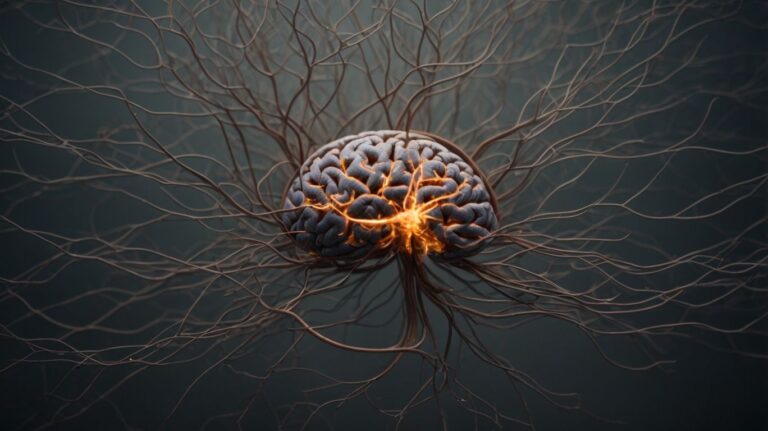Madness, a concept that has intrigued and baffled us for centuries, has been viewed through various lenses throughout history. From the medical perspective, we examine the biological causes, diagnosis, and treatment of madness.
Psychologists offer different theories on its origins and how it can be understood and managed. Sociologists delve into how society shapes our perception of madness and the social factors that may contribute to it.
We explore how different cultures view and address madness, and the cultural factors that impact the experience of this phenomenon. Join us on a journey through the complex and multifaceted concept of madness.
Contents
- 1 What Is Madness?
- 2 The Medical Perspective on Madness
- 3 The Psychological Perspective on Madness
- 4 The Sociological Perspective on Madness
- 5 The Cultural Perspective on Madness
- 6 Frequently Asked Questions
- 6.1 What is the concept of madness in psychological perspectives?
- 6.2 How do psychological perspectives define madness?
- 6.3 What are some common psychological perspectives on madness?
- 6.4 What role does mental illness play in the concept of madness?
- 6.5 How do psychological perspectives view the treatment of madness?
- 6.6 Can the concept of madness be viewed differently in different cultures?
What Is Madness?
Madness, a term deeply intertwined with the realms of psychiatry and mental illness, has a complex history that reflects the evolution of human civilization and the changing perceptions of the mind and its complexities.
The concept of madness has been deeply ingrained in the narrative of human history, with ancient civilizations attributing mental disorders to supernatural forces and divine punishment. It was only with the emergence of structured societies that a shift towards more systematic explanations began. Greek philosophers like Hippocrates laid the groundwork for a medical understanding of madness, emphasizing the role of bodily fluids in mental health. Throughout the centuries, societal beliefs and cultural factors heavily influenced the perception and treatment of madness, sometimes leading to stigmatization and misconceptions.
How Has the Definition of Madness Evolved Over Time?
The definition of madness has undergone profound transformations throughout history, influenced by cultural shifts, philosophical perspectives, and advancements in psychiatric understanding, shaping how societies perceive and address mental distress.
In the early modern period, madness was often viewed through a lens of religious and moral judgment, with individuals deemed as possessed by evil spirits or being punished for sinful behavior.
- Freud’s psychoanalytic approach marked a significant shift, focusing on the subconscious and childhood experiences as determinants of mental health.
- Foucault critiqued the institutionalization of madness as a social construct reinforcing power dynamics.
These divergent views highlight the complex interplay between psychological, social, and historical factors in defining and treating madness.
The Medical Perspective on Madness
The medical perspective on madness delves into the biological underpinnings of mental disorders, exploring the role of the brain, psychiatric treatments, and the clinical expertise of psychiatrists in diagnosing and managing various psychiatric disorders.
Psychiatrists rely on a combination of genetic predispositions, neurotransmitter imbalances, and structural brain abnormalities to understand the root causes of mental illnesses. Through neuroimaging techniques like MRI and PET scans, they can visualize the brain’s intricate functions and detect any anomalies that may contribute to mental health issues. This scientific approach enables psychiatrists to tailor brain-based treatments such as medication management, electroconvulsive therapy, and transcranial magnetic stimulation to address specific neurological dysfunctions that underlie psychiatric conditions. By integrating biological knowledge with therapeutic interventions, psychiatrists aim to provide comprehensive care for individuals struggling with mental health challenges.
What Are the Biological Causes of Madness?
Madness, from a medical standpoint, is often attributed to biological factors involving the brain’s intricate workings, neurotransmitter imbalances, and the biological reductionist approach that seeks to understand mental disorders through a neuroscientific lens.
When exploring the biological causes of madness, researchers delve into the complexities of brain functions. The brain, being the control center of the body, plays a pivotal role in regulating emotions, thoughts, and behaviors. Imbalances in neurotransmitters, such as serotonin, dopamine, and norepinephrine, can disrupt communication between neurons, leading to altered mental states. This neurotransmitter imbalance hypothesis suggests that abnormalities in these chemical messengers can contribute to the development of psychiatric conditions.
The reductionist view of mental disorders focuses on breaking down complex psychological phenomena into simpler biological explanations. This reductionist approach aims to unravel the physiological mechanisms underlying madness, emphasizing the role of genetics, brain structures, and neuronal activity. By dissecting mental illnesses at a molecular level, scientists aim to identify specific biological markers and potential treatment targets.
How Is Madness Diagnosed and Treated from a Medical Perspective?
In the medical realm, diagnosing and treating madness involves a multifaceted approach that includes clinical assessments, therapeutic interventions, pharmacological treatments, and targeted strategies for managing psychoses and related disorders.
The diagnostic methods for identifying madness have evolved over time, with early historical practices often relying on observation and theory rather than empirical evidence. In modern times, advancements in psychology and neuroscience have led to the development of standardized assessment tools such as the Diagnostic and Statistical Manual of Mental Disorders (DSM) used by healthcare professionals to categorize and diagnose mental illnesses.
Therapeutic approaches encompass a wide range of techniques, including psychotherapy, cognitive-behavioral therapy, and mindfulness practices designed to help individuals manage symptoms and improve their overall well-being.
Pharmacological interventions involve the use of psychotropic medications such as antipsychotics, mood stabilizers, and antidepressants to alleviate symptoms and regulate brain chemistry.
Specific treatments for psychoses may include electroconvulsive therapy (ECT) for severe cases or transcranial magnetic stimulation (TMS) as a non-invasive alternative for some individuals resistant to traditional therapies.
The Psychological Perspective on Madness
The psychological perspective on madness focuses on diverse theories that explore the psychological causes, symptoms, and therapeutic interventions offered by psychologists, shedding light on the cognitive and behavioral aspects of mental distress.
In understanding madness from a psychological standpoint, one prominent theory is the cognitive behavioral approach, which highlights the significant role of thought patterns and behaviors in shaping mental health. This perspective views cognitive distortions as key factors contributing to irrational thinking and emotional disturbances in individuals experiencing madness.
Psychologists often investigate the underlying causes of madness, considering a range of factors such as genetic predispositions, traumatic experiences, and societal influences. These various elements interact in complex ways to contribute to the manifestation of symptoms associated with psychological distress.
What Are the Different Theories on the Causes of Madness?
Psychologists have proposed various theories to explain the origins of madness, drawing insights from clinical observations, patient experiences, and the diverse spectrum of mental disorders that manifest in different individuals.
One of the prominent schools of thought in psychology is the psychoanalytic perspective, which delves into the subconscious mind and early childhood experiences to unravel the complexities of madness. Sigmund Freud, often considered the father of psychoanalysis, suggested that unresolved conflicts and repressed desires could lead to mental disorders.
Freud’s psychoanalytic theory has been influential in shaping modern views on madness, emphasizing the role of unconscious processes and the importance of exploring past traumas. By examining patient case studies through a psychoanalytic lens, psychologists aim to uncover underlying psychodynamic factors that contribute to the development of mental illness.
How Do Psychologists Understand and Treat Madness?
Psychologists employ a range of therapeutic modalities, including cognitive behavioral therapy, to understand and treat madness, offering tailored interventions for different psychological disorders, including psychoses.
One prominent approach in the field of psychology focuses on providing patient-centered care, which emphasizes the individual’s unique needs and preferences. This personalized approach ensures that treatment plans are tailored to each patient’s specific circumstances, promoting better outcomes and satisfaction.
Psychologists also utilize interventions such as Mindfulness-Based Stress Reduction (MBSR) to help individuals cope with symptoms of psychosis and enhance their overall well-being. These evidence-based techniques emphasize mindfulness practices, helping individuals cultivate awareness and acceptance of their experiences.
The Sociological Perspective on Madness
The sociological perspective on madness examines how societal norms, cultural beliefs, and social structures influence the perception and treatment of insanity, highlighting the intricate interplay between individuals and the broader social environment.
Madness has been viewed differently across various historical periods and cultures, reflecting the evolution of societal attitudes towards mental health.
For instance, in the Middle Ages, individuals exhibiting symptoms of what was then termed ‘madness’ were often perceived as possessed by evil spirits, leading to exorcisms and harsh treatments.
In contrast, the Age of Enlightenment ushered in a more scientific approach to understanding mental illnesses, paving the way for modern psychiatric practices and the development of the concept of mental health disorders.
How Does Society Influence Our Understanding and Perception of Madness?
Society plays a pivotal role in shaping our understanding and perception of madness, reflecting cultural norms, psychiatric practices, and the inherent complexities of human nature that underpin the social construction of mental health.
The perceptions of madness have evolved over time, influenced by a myriad of factors such as religious beliefs, philosophical paradigms, and advancements in medical science. Throughout history, different societies have viewed mental health through diverse lenses, ranging from spiritual explanations to biomedical frameworks.
Societal attitudes towards madness can impact how individuals seek treatment, interact with those experiencing mental health challenges, and shape policies regarding mental healthcare.
What Are the Social Factors That May Contribute to Madness?
Various social factors may contribute to the emergence of madness, including cultural pressures, societal expectations, psychiatric frameworks, and the inherent complexities of human interactions that shape the experiences of individuals within society.
Exploring the cultural influences on madness reveals how different societies interpret and define mental health. For example, in some cultures, certain behaviors or beliefs that may be seen as normal could be labeled as ‘madness’ in others. Societal pressures, such as stigma surrounding mental illness, can impact how individuals perceive their own struggles and seek help. The evolution of psychiatric paradigms also plays a significant role, as diagnostic criteria and treatment approaches have evolved over time, reflecting changing societal attitudes.
The Cultural Perspective on Madness
The cultural perspective on madness delves into the diverse ways in which different societies and historical periods have viewed and addressed mental illness, drawing insights from cultural practices, historical narratives, and the works of influential figures like Freud and Goffman.
This lens offers a captivating journey through the evolution of psychiatric thought, from the stigmatization of mental health issues in ancient civilizations to the emergence of more compassionate approaches in modern times. Examining the societal responses to madness provides a window into the prevailing attitudes and norms surrounding mental health, shedding light on the shifting perceptions of individuals grappling with psychological challenges.
How Do Different Cultures View and Address Madness?
Different cultures exhibit diverse perspectives on madness, with historical figures like Freud and Goffman shedding light on the cultural influences, societal practices, and historical contexts that shape the understanding and treatment of mental illness across civilizations.
For instance, in ancient Egypt, mental illness was often attributed to spiritual causes, and treatment involved rituals and incantations meant to appease the gods. In contrast, medieval Europe viewed madness as a form of divine punishment, leading to the confinement of individuals in asylums. Freud’s psychoanalytic theories introduced the idea of the unconscious mind and the role of childhood experiences in shaping mental health, influencing how Western societies approached therapy.
What Are the Cultural Factors That May Impact the Experience of Madness?
Cultural factors play a significant role in shaping the experience of madness, influencing neurological concepts, philosophical explorations, and psychological understandings of mental distress within the diverse fabric of human societies.
Throughout history, societal norms have defined what is considered acceptable behavior, often dictating how individuals express and cope with mental challenges. In ancient civilizations, such as Egypt and Greece, madness was often viewed through a spiritual or divine lens, with treatment methods rooted in religious rituals and beliefs.
As societies evolved, philosophical viewpoints on madness also transformed, with prominent thinkers like Plato and Aristotle pondering the nature of the mind and its deviations. This philosophical introspection laid the groundwork for future discussions on mental health and the role of culture in shaping perceptions of madness.
Frequently Asked Questions
What is the concept of madness in psychological perspectives?
The concept of madness in psychological perspectives refers to an individual’s abnormal or irrational behavior, thoughts, or emotions that deviate from societal norms and can be attributed to mental health conditions.
How do psychological perspectives define madness?
Psychological perspectives define madness as a disruption in one’s cognitive, emotional, or behavioral functioning, often caused by underlying psychological or neurological factors.
What are some common psychological perspectives on madness?
Some common psychological perspectives on madness include the biological perspective, psychodynamic perspective, cognitive-behavioral perspective, and humanistic perspective.
What role does mental illness play in the concept of madness?
Mental illness plays a significant role in the concept of madness as it is often the underlying cause of abnormal behavior, thoughts, or emotions that deviate from societal norms.
How do psychological perspectives view the treatment of madness?
Psychological perspectives view the treatment of madness as a combination of therapy, medication, and lifestyle changes to address the underlying mental health condition and help individuals manage their symptoms.
Can the concept of madness be viewed differently in different cultures?
Yes, the concept of madness can be viewed differently in different cultures as cultural norms and beliefs can influence how abnormal behavior, thoughts, or emotions are perceived and treated.




